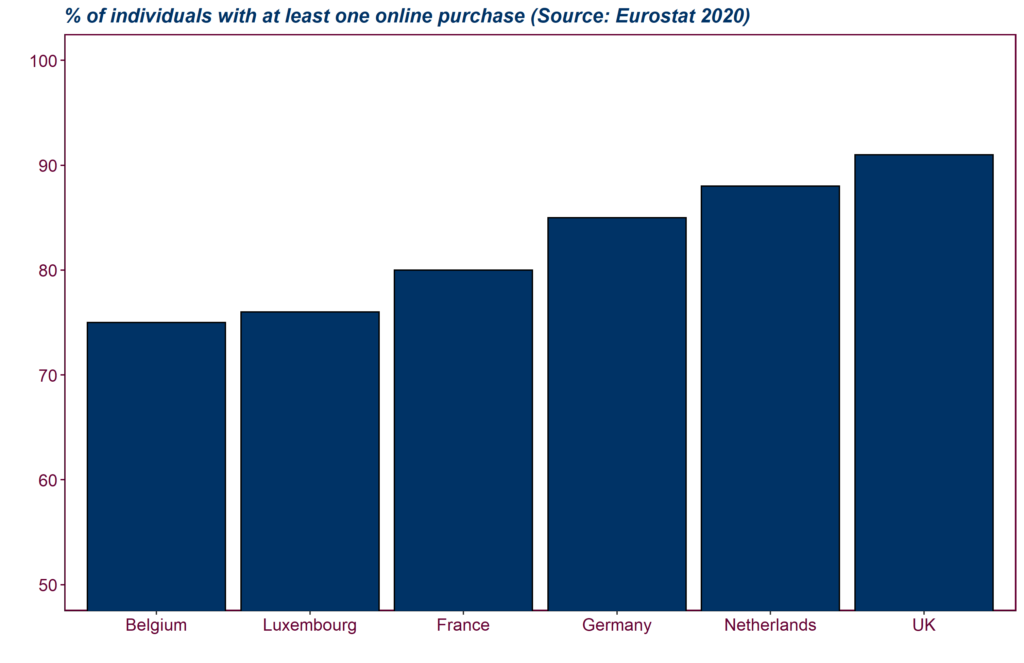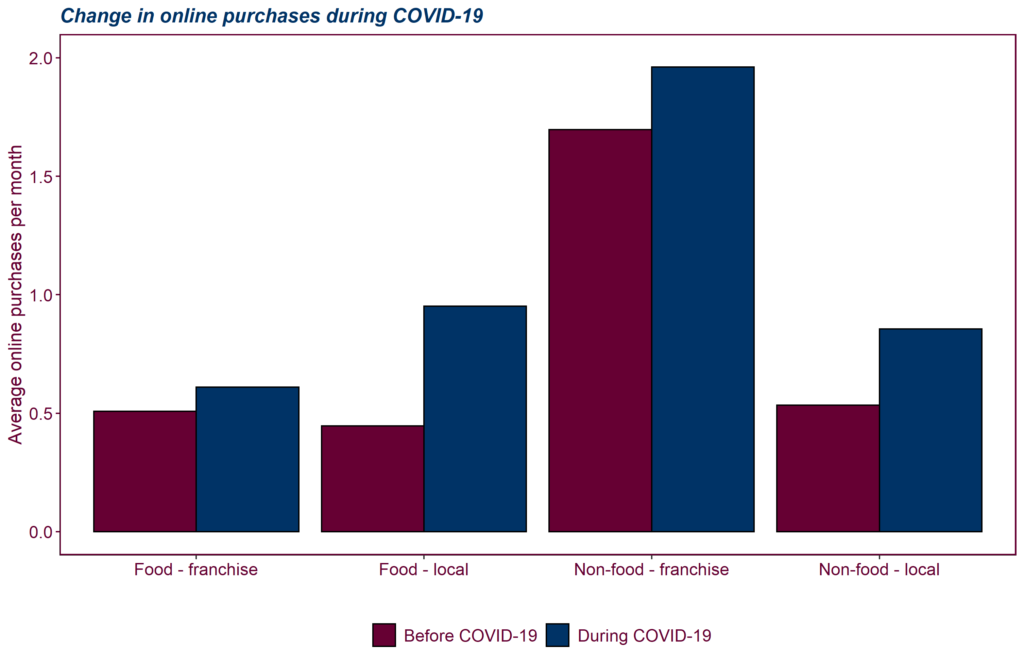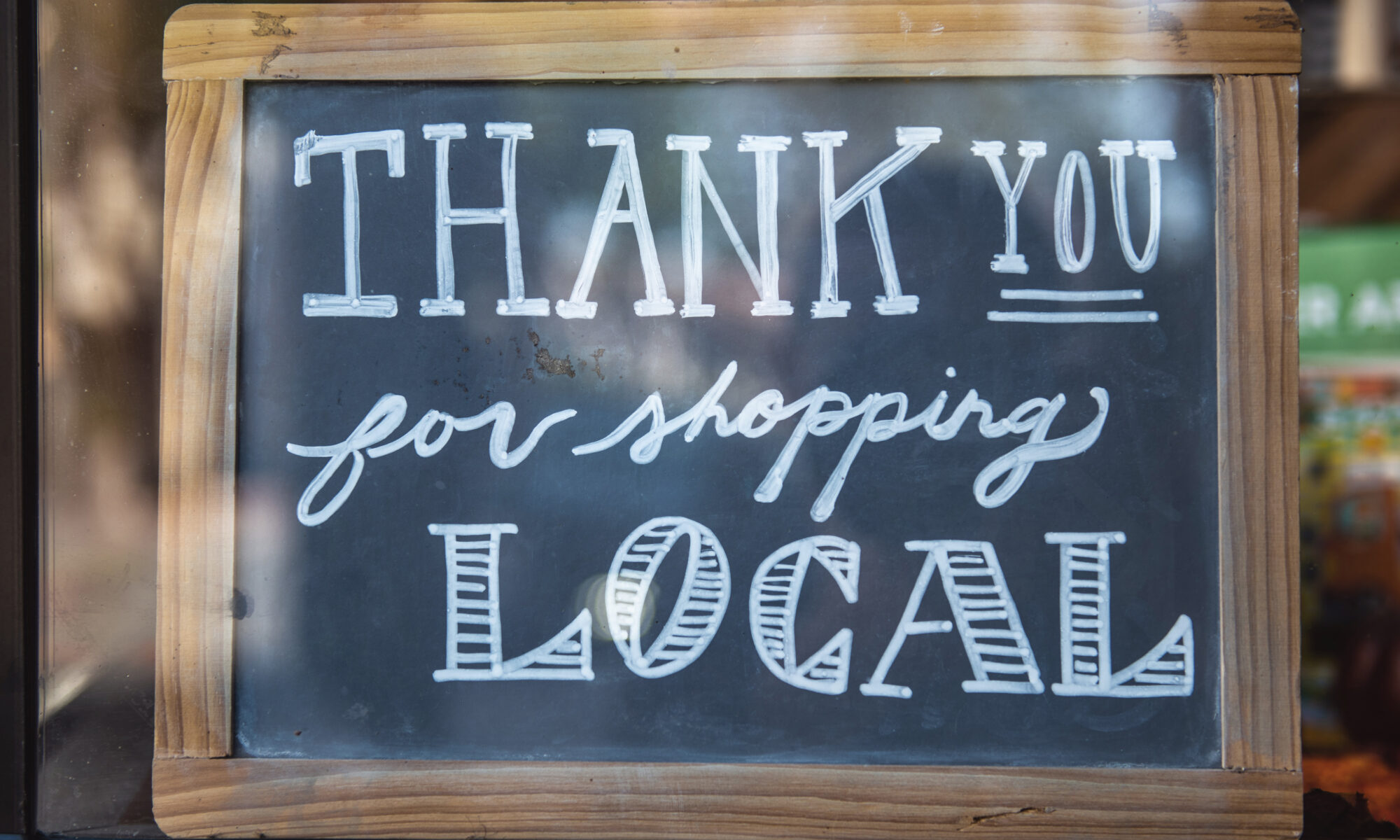The COVID-19 crisis offers a great opportunity for your local bakery, specialized retailer or grocery store. The obligatory closure of physical shops forced many of them to finally set up a webshop while consumers had to move online to purchase products. Social elements as solidarity, the shop local campaigns and the need for interaction at times of social distancing were the matchmakers on duty. The entrepreneurs should now benefit from the efforts made and professionalize their online channel.
By Joris Beckers and Prof. Ann Verhetsel
Belgium was not an e-commerce country before COVID-19
Belgium possesses a relative traditional retail and hospitality landscape. Urban sprawl in our country resulted in a scattering of stores and bars with the infamous strip malls along our axes roads. Yet (larger) local retail centers managed to stay relevant as pleasant shopping areas for fun-shopping while peripheral locations hosted mostly run-shoppers. This dual shopping landscape remained largely intact in spite of the rise in online shopping.
“Our dense urban network implied the majority of the products could be found relatively close to home, limiting the need to go online. Before COVID-19, we hence unsurprisingly displayed relative low e-commerce levels compared to our neighbors.”

Source: Eurostat 2020
Digital shift provides opportunities for small retailers and horeca
As a result, the lockdown measures for the retail and hospitality sectors came as a shock. Few stores had an online presence, making these two of the sectors to be hit hardest by the pandemic. But they adapted quickly. Our survey in May among Flemish retailers and horeca showed that 50% of the entrepreneurs that did not have an online presence before the pandemic, opened a webshop in the beginning of the lockdown.
The ninth wave of the De grote Coronastudie (May 12, 2020) captured the change in online shopping behavior by Belgian consumers, showing the digitalization in retail and horeca was both necessary and rewarding.

Source: Corona Studie 2020, Universiteit Antwerpen, UHasselt, KU Leuven
Big players (included in non-food – franchise) like Bol.com and Zalando are of course one of the few winners in this crisis. Nonetheless, we see that online purchases of local food and non-food rose with 110% and 66% respectively. The former is understandable given it does not make sense to order food from the other side of the country, but especially the latter is encouraging, showing that many shoppers choose the local webshops over giants like Coolblue or Amazon.
The deliberate choice for purchasing local products online can be attributed to a couple of social factors.

- First, there is a large solidarity due to ‘all of us being in this together’. Those who can continue their work from home support those that have more difficulties surviving, especially if it is the bike store or deli around the corner. When all this is over, you want to go back to the pub you used to frequent before.
- Second, the shop local campaigns by sector federations UNIZO and Comeos as well as initiatives taken by provinces and cities seem to be very effective.
- Third, picking up your purchase at the shop next door or being delivered by the shop owner from the other side of town provided a small but very much needed opportunity of social contact during isolation.
The online channel seems only a temporary solution
“In summary going online created new opportunities for local entrepreneurs. However, these changes are not without its challenges.”
The digital shift provided a temporary solution for many. Our survey among entrepreneurs found that 96% did not charge anything extra to cover the costs of opening the webshop or processing the orders. More astonishing, 60% did not even ask for a delivery fee. Nonetheless, over half of the respondents indicated they did the delivery themselves, the majority of them even over distances further than 10 km. Others chose the national post to organize their logistics. Yet they did not work for free neither and even infamously increased their prices during the lockdown.
The logistics sector however does see the opportunities. Five of the six selected projects in the project call city logistics of the City of Antwerp specifically provide logistics solutions for small businesses that went online. These include for example the implementation of locker boxes that local companies can use for a reduced fee while it allows customers to pay directly at the locker. Such solutions can greatly support small businesses and provide a new dimension to shopping local.

The time to professionalize is now
Our research indicated that businesses managed to retain a little over 20% of their revenue by going online. With the support provided by the government, this was just enough to survive. However, almost 70% of the respondents viewed their webshop as relatively unimportant going forward. While this might mean our shopping streets will look the same post-COVID, it seems like a missed opportunity.
“The question remains what will happen if we have more ‘lockdown-situations’ in the future, and subsidies dry up. Or people get so used to online shopping that overall offline sales drop.”
Entrepreneurs need to capitalize on the efforts made and further strengthen their online channel and professionalize digital sales and deliveries. The urge of the government to use Click&Collect is a good way to motivate stores to make this effort. This would also improve their competitive advantage in the upcoming battle for the current “cheap online shoppers”, who will have to look for new outlets if the prediction of the end of cheap cross-border shopping, as discussed in a previous blog by my colleagues, comes true.


